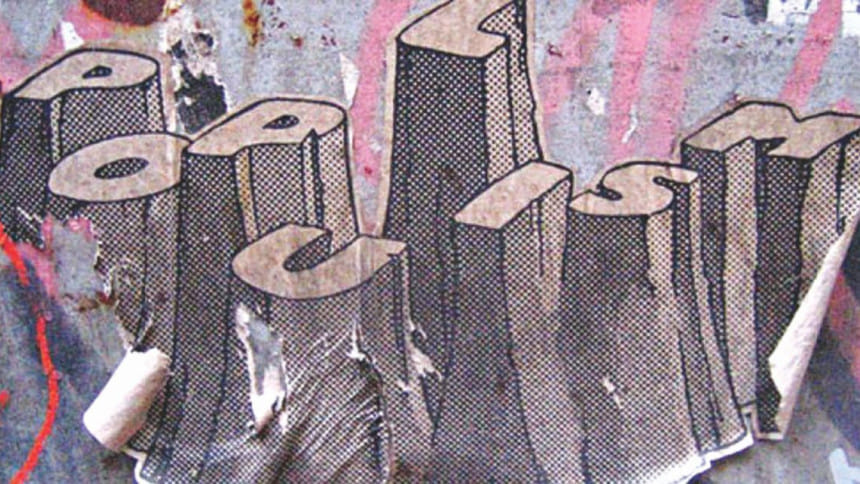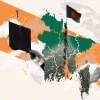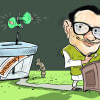Populism and how it impacts democracy

In recent times, the socio-political scenes in scores of countries around the world have been turning toxic. A creeping polarisation among political forces is taking hold, accompanied by a culture of demonising the adversaries, use of vitriolic and bareknuckle hate rhetoric. The norms of civility and tolerance are eroding rapidly. A complex array of factors is driving this venomous trend, with the result that even in countries that had earlier experienced decently democratic governance, people, especially minority ethno-religious groups, now live in a stifling atmosphere of insecurity.
Recently, the UN Secretary General Mr Antonio Guterres in his address to the Human Rights Council in Geneva on February 25 voiced deep disquiet about this trend.
Turning to the deplorable and spreading breaches in multiple areas of human rights, the SG observed: "I am also deeply alarmed by the shrinking space in every region of the globe and every corner of internet…One thousand human rights defenders and journalists were killed in the last three years…we must hold accountable those who commit such acts. We must not tolerate the outrageous near impunity for crimes against journalists and media workers." The SG drew attention to how the political processes in every region is being poisoned; "Indeed, hate is moving into the mainstream in liberal democracies and authoritarian regimes alike. Some major parties and leaders are cutting and pasting ideas from the fringes into their own propaganda and electoral campaigns." The Secretary General's angst over a trend which will increasingly destabilise societies and fuel strife and conflict, and perhaps beget worse things, was not vented merely as a ritual. He pointed to a gravely real and insidious phenomenon that civilised minds everywhere need to combat collectively before it eviscerates civilised political templates across the face of the globe and enmesh humanity in unspeakable misery.
In the later part of 2018, a scholarly exchange among four intellectuals, Daphne Halikiopoulou of University of Reading, Bart Bonikowski of Harvard, Kaufman of University of London and Rooduijin Matthis of University of Amsterdam explored in some depth how populism shapes political behaviour and mindset. These scholars looked at the working of populism and the way they affect societies. Their consensual view was that populism is a form of nationalism that is "exclusionary, violent and confrontational." They agreed that populism can be hostile to liberal democracy. Bonikowski observed that this hostility is exhibited in the politics of the radical right that subsumes populism, nationalism and authoritarianism. Kafman noted that populism can be a negative force. It erodes respect for liberal institutions, minorities, and reason. These features of populism are afflicting many nations and are in frequent discussions.
Roodjuin Matthis argues that populism is incompatible with the liberal pillar of contemporary democracies and tends to breed "the tyranny of majority". Haliokopoulou contends that populism is always negative, rejects democratic institutions and processes and also the very basis of democracy. Though "linked with the will of the people", she points out that in practice, it undermines institutions that underpin checks and balances which are the bedrock of democracy's functionality.
All these four scholars attempt to draw a distinction between right-wing and left-wing populism. They agree that while right-wing populism sets people against the cultural elite, left-wing populism pits the people against an economic elite. What is common between the two types is that they both create an animus between the people and the elite.
An important aspect of right-wing populism that needs to be recognised is its affinity with "ethno-traditional nationalism" (Kaufman's term). This version of populism does not so much as oppose a minority presence but is fearful of, and tries to pre-empt a change of the demographic structure that may make a minority morph into a majority. In other words, the movement works to prevent traditional ethnic composition.
Left-wing populism tends to imbue their populism with an inclusive, civic character, in contrast to the exclusionary version pushed by the right-wingers.
A brief reference to some specific cases of how populism is expressing itself in terms of political realities will provide some clarity.
The case of how Victor Orban, the Prime Minister of Hungary and an outspoken nationalist, is trying to destroy the democratic institutions and turn Hungary into a repressive authoritarian state deserves attention. Orban, in power since 2010, has moved inexorably towards concentrating unbridled power, eliminating constitutional safeguards and reshaping the state to his agenda and "posing a threat to even the European Union" (Atlantic). The main centre right party of EU parliament is furious, and threatened to expel his ruling Fidesz Party from the grouping. His hard-line policy on immigration and undermining of the rule of law has utterly alienated the EPP, European Parliament's biggest group. The European Commission Chairman Jean-Claude Junker backs this move. The Chairman of the European Stability Union think tank Gerald Knaus has called him "the most dangerous man in the European Union."
Another example is Brazil's new president Jair Bolsonaro. He is a far-right, pro-gun, pro-torture populist who was elected in Brazil's last polarising election which has the potential to reframe the world's fourth biggest democracy. I do not need to say that there are other very glaring examples which my readers must surely be as aware of.
It is a very worrying thing that more and more political personalities now find it convenient to play on certain complexes and proclivities of a given segment of society (e.g. an ethno-religious demographic group) to advance their political ambitions. They fuel these very proclivities which in turn inflames rift and tensions in nations. A consequence of this political contraption is that the groups that feel threatened will react with their own devices, and react with equal rancour and virulence...
Look at what is happening in America after the Democrats retrieved the Congress and the eerie outlook for the next two years leading up to 2020 presidential election! Listen to the tone of how the media is covering events!
Ziaus Shams Chowdhury is a former ambassador.










Comments